Which UK electrical appliances can you use in New Zealand and how do you adapt them to the NZ electrical system?
If you are moving to New Zealand from the UK there will be a lot to prepare for. Some of your considerations should surround what electrical goods you should ship with you, which to leave behind and how you can adapt to the New Zealand electrical system.
Unfortunately, there is a lot of incorrect and confusing advice in circulation on the internet and on expat forums regarding the differences and similarities between the UK and New Zealand. Our guide is here to provide you with more accurate information to help you make an informed decision about electrical appliances take with you on your relocation to New Zealand.
Some people advise to leave UK electrical items behind but most can work perfectly well in New Zealand with little adaptation.
The UK and New Zealand Electrical Systems
The good news for UK residents heading to New Zealand is that both countries electrical systems are highly similar. New Zealand, like the UK, uses 230 voltages and most appliances you bought in the UK will work without problems in New Zealand, with very few exceptions.
Converting UK Type G Plugs to New Zealand Type I
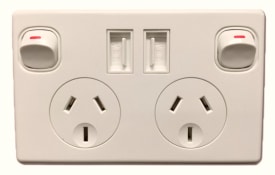 One main difference is the type of plug used which can be solved by getting your plugs changed upon arrival or with a plug adapter. This is because New Zealand uses plug type I while the UK uses plug type G. Knowing the two plug types will come in useful when you purchase these adapters. It is always better to buy any adapters before arriving to make your initial days easier.
One main difference is the type of plug used which can be solved by getting your plugs changed upon arrival or with a plug adapter. This is because New Zealand uses plug type I while the UK uses plug type G. Knowing the two plug types will come in useful when you purchase these adapters. It is always better to buy any adapters before arriving to make your initial days easier.
To save even more money, you can bring your UK extension lead and thus buy fewer plug adapters.
Be careful, however, with travel adapters whilst these are fine for short term use on holiday, they are not an ideal long-term solution and, as a safety precaution, you should get your plugs changed into type I ones once you have settled in.
10 Amps Vs. 13 Amps
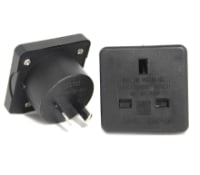 Although New Zealand and the UK have electrical systems that resemble each other in a lot of aspects, there is one other big difference between the two. Whereas the UK’s electrical system has a limit of 13 amps, New Zealand’s runs on three amps less at just ten amps. This means that some electrical devices which use above ten amps may not work in New Zealand. Or an accumulation of devices using more than ten amps through an extension cord may be dangerous.
Although New Zealand and the UK have electrical systems that resemble each other in a lot of aspects, there is one other big difference between the two. Whereas the UK’s electrical system has a limit of 13 amps, New Zealand’s runs on three amps less at just ten amps. This means that some electrical devices which use above ten amps may not work in New Zealand. Or an accumulation of devices using more than ten amps through an extension cord may be dangerous.
To find out which of your electrical products this may affect, it is best to consult manufacturing guides or the manufacturers directly. Overall, the difference does not cause disruption or inconvenience to many people who are relocating, but it remains possible that your device will not work in New Zealand. More on the important safety consideration on this matter can be found further down our guide.
What Electrical Appliances Can You Take to New Zealand?
Most electrical gadgets and appliances are perfectly fine to take with you to New Zealand. To give you some considerations, here is a list of the most popular appliances that people take and the things they must do or bear in mind.
Generally check your all your electrical items – if the power rating says 2400W (2.4kW) or less, or 10A or less you’ll be fine.
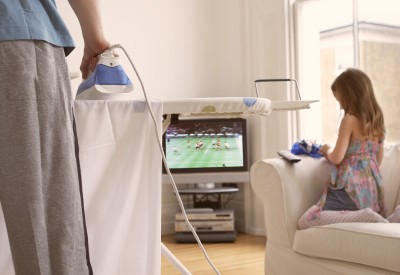 Small Kitchen Appliances
Small Kitchen Appliances
Most small electrical appliances and devices such as blenders, mixers, juicers, vacuum cleaners, microwaves etc. will work just fine in New Zealand. In fact, items such as Dysons can be particularly expensive so are well worth bringing.
Just do not overload one socket and surpass the ten amps that New Zealand runs off by using too many appliances together.
Small Appliances with Heating Elements
Appliances with heating elements such as irons, toasters, kettles, hair dryers and hair straighteners need to be used with caution. Some people report having no problems at all, whilst others have problems with the NZ plugs only being 10 amps rather than 13 causing fuses to blow or the items to cease working after a while.
It can be worth checking the amps and voltage required before deciding whether to take them with you.
White Goods and Large Kitchen Appliances
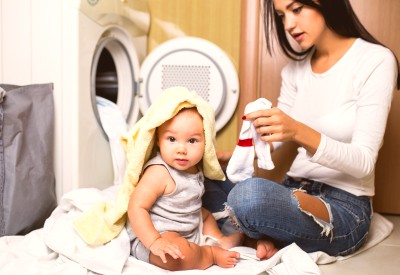 Many people mistakenly think that white goods such as fridges, freezers, washers, dryers and dish washers are bulky and so not worth the cost of shipping.
Many people mistakenly think that white goods such as fridges, freezers, washers, dryers and dish washers are bulky and so not worth the cost of shipping.
However, white goods (often called whiteware in NZ) are much more expensive in New Zealand and it is financially better to take yours with you. Similar to other kitchen appliances, these also need to be clean and dry to prevent any contaminated dirt or banned foods make their way in your laundry machine or dishwasher, respectively. Moreover, drums need to be secured to protect the machine from damage.
Computers, Gadgets and Other Electronic Devices
Electronic devices such as printers, laptops and computers will usually always work in New Zealand and will not be a problem to bring into New Zealand.
The main consideration when transporting these items is if they have lithium-ion rechargeable batteries. See the section below that addresses how to pack and transport lithium-ion batteries by air freight and sea freight.
Do UK TV sets work in New Zealand?
Short answer is yes – but with a few tweaks!
Televisions are common items you’ll want to take with you when you relocate from the UK – especially if you have a large new smart TV. TVs may also be more expensive in New Zealand and worthwhile to transport with the rest of your belongings. However, New Zealand TVs work on a different frequency to TVs in the UK which often results in the loss of channels, sound or both.
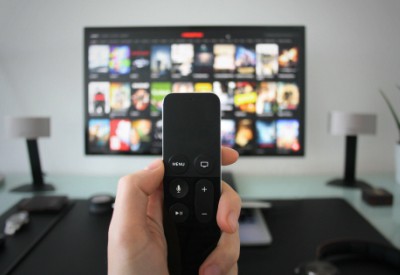 Searching deep in your TV’s menu may solve this problem by switching settings from PAL I to PAL B/G. Your TV’s manufacturer may also be able to help you transfer your TV into a more locally operating one.
Searching deep in your TV’s menu may solve this problem by switching settings from PAL I to PAL B/G. Your TV’s manufacturer may also be able to help you transfer your TV into a more locally operating one.
Another solution is to use a Sky TV or other set top box (which can be purchased cheaply in NZ electrical stores) to run your TV through. This will solve issues that prevent your TV from accessing audio or visuals.
If however you have a large and older TV, you may well be better off treating yourself to a new one in New Zealand.
For shipping your TV safely to New Zealand you’ll need to ensure it is well packed. You can use the original box or packaging or your shipping company will be able to provide a custom made wooden crate.
Some good news for UK residents is that New Zealand does not require you to purchase a TV licence.
Game Consoles. Media and DVDs
 New Zealand is PAL region, same as UK and, as previously, stated uses the same 230 voltage so you should have no problem using consoles such as Xbox 360 / One, Nintendo PS3 & PS4 etc.
New Zealand is PAL region, same as UK and, as previously, stated uses the same 230 voltage so you should have no problem using consoles such as Xbox 360 / One, Nintendo PS3 & PS4 etc.
Your UK online gaming accounts will work fine or you can set up a new NZ account if you prefer.
The UK is Region 2 for DVDs, New Zealand is Region 4 but if you have a multi-region DVD player or the DVDs you have are region-free, then they will work.
Using UK Landline Telephones in New Zealand
UK telephones should work fine as New Zealand use the same telecom system as BT. However you’ll need to check your cordless phone is using the correct frequency as there is a small chance it might interfere with other services.
Do UK DAB Radios Work in New Zealand?
AM/FM radios will work fine however, there is a significant lack of digital audio broadcast radio services, namely DAB. The Government did trial limited DAB services through state owned Kordia in Wellington and Auckland, but these trials came to an end in 2018 and it’s not known if or when they will resume.
Lawnmowers and Outdoor Electrical Goods
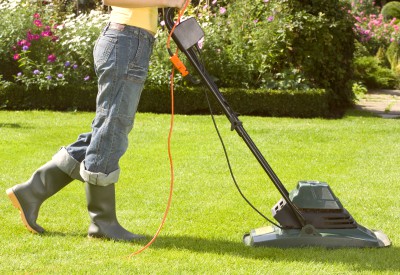 Lawnmowers and outdoor goods are convenient and worthwhile possessions to take with you to New Zealand, especially when homes there often come with more outdoor living space and bigger gardens.
Lawnmowers and outdoor goods are convenient and worthwhile possessions to take with you to New Zealand, especially when homes there often come with more outdoor living space and bigger gardens.
Yet, biosecurity regulations come into full force on these items and you will need to make sure there is not a spec of dirt on them to pass border security personnel. If they are deemed not clean enough and a potential hazard to New Zealand’s ecosystem, it is likely that you will have to pay for them to be cleaned or even pay for them to be destroyed.
So it you can’t thoroughly clean your lawnmower and are unsure of what garden you’ll have in NZ, then you may well be better off leaving it behind.
Advice on Adapting UK Electrical Items for New Zealand
Using UK to NZ Travel Adaptors
The simplest solution when travelling to New Zealand is to use travel adaptor plugs which can be purchased cheaply in the UK before you go. These mains power adaptors work for Australia too.
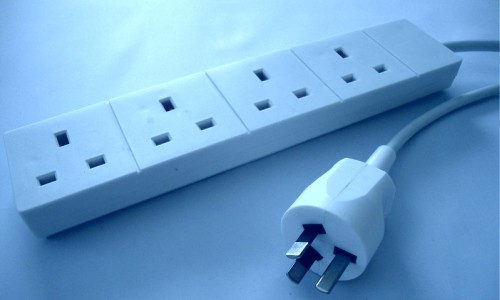 However whilst ideal for short term use, such as going on holiday to New Zealand, they are not meant for long term use. Therefore. Whilst these may be good to get you started you should think about replacing plugs on items you use regularly and especially those that have a higher power load.
However whilst ideal for short term use, such as going on holiday to New Zealand, they are not meant for long term use. Therefore. Whilst these may be good to get you started you should think about replacing plugs on items you use regularly and especially those that have a higher power load.
Another solution is to purchase a UK to New Zealand travel extension plug adapter which has multiple sockets. This is a safe and easy way to convert your UK electrical items and you’ll find it a lot cheaper to purchase a few of these online before you leave the UK.
Avoid Overloading Sockets and Extension Leads
Earlier in our guide we mentioned the difference between the New Zealand and UK electrical systems, namely that New Zealand maxes out on three fewer amps than the UK. In practice, this means that New Zealand outlets will let you run up to 2300 watts while the UK will allow 3000 watts.
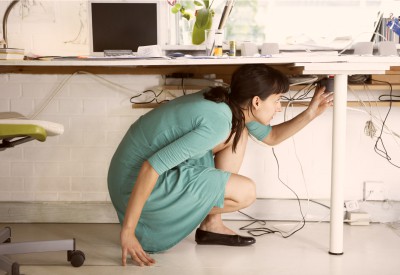 If you run appliances below 2300 watts then using New Zealand’s electrical system can be considered safer than the UK’s. This is because if any defects occur, the fuse within a cable extension will blow quicker than it would in the UK.
If you run appliances below 2300 watts then using New Zealand’s electrical system can be considered safer than the UK’s. This is because if any defects occur, the fuse within a cable extension will blow quicker than it would in the UK.
The main thing to consider is the number of watts you are using. The appliances you load into an extension cable must not overload sockets in New Zealand. Ultimately, this means that you may not be able to run all the same appliances on one extension cable like you used to in the UK.
Being aware of this and ensuring you do not overload sockets or extension leads in New Zealand should be a priority.
How to Change a UK plug to a New Zealand one
Here’s a video from a UK migrant to New Zealand showing how he changed plugs and also, like many UK expats, uses a UK extension lead to power his UK appliances.
Whilst it is quite a simple procedure to change plugs, we recommend for safety reasons that you use a qualified electrician if you are at all unsure.
Sending Batteries from the UK to New Zealand
You may have not given much thought to the batteries you will send to New Zealand, but there are strict regulations that you need to know the rules of when shipping batteries internationally. This is because batteries can be a safety risk and be the cause of fires. Sending batteries by air freight and sea freight include different rules. Here is what you need to know:
Sending Standard Batteries
Sending standard lithium batteries such as AA or AAA batteries is not recommended when using sea freight. However, it is not against the law to do so when contained in a device with a hard plastic shell or within hard plastic casing. When transporting these types of batteries with air freight, they must be placed inside their respective device and cannot be packaged in any other material or casing.
Sending Lithium-ion Batteries
Sending lithium-ion batteries is possible in both sea freight and air freight by leaving them in their devices or by placing them in a hard plastic case. However, there is an additional rule when transporting them by air freight. In these situations, the lithium-ion battery must have a watt-hours rating of less than 100.
Sending Batteries Inside Power Tools
Sending batteries inside power tools is significantly different between using air freight or using sea freight. In the former, the batteries must be attached to the device and any spares must be packaged in a spare container made of hard plastic. Each box may only contain three spares. On the other hand, when sending these batteries by sea freight they must be placed in the same type of packaging but there is no restriction to how many can be placed in each box.
For more details see our comprehensive guide to shipping batteries overseas.
A Word on Gas in New Zealand
On the North Island, there are some natural gas resources available although these resources can be sporadic. On the South Island it is a different story. There are not enough natural gas deposits on the island and therefore can be extremely expensive for those that require it. Currently there are no government plans to improve the situation because of the island’s low population – and thus no justification for implementing such expensive infrastructure.
Christchurch, Queenstown and Wanaka do have LPG networks, but this is the extent of gas resources available. The bottom line is that it is recommended to use electrical devices when living in New Zealand.
Home Appliance Stores and Electrical Suppliers In New Zealand
There are plenty of electrical retailers and suppliers in New Zealand with branches around both Islands or you can order online.
Here’s a few options to get you started:
https://www.bettaelectrical.co.nz/
https://www.harveynorman.co.nz/
Get Help with Your New Zealand Relocation
If you are planning your relocation to New Zealand and want help from a professional removals company then speak to us at PSS International Removals. We have a dedicated team and long-standing partners that allow us to relocate your electrical goods and other possessions seamlessly at the best price.
For further guidance and to get your queries answered simply contact our helpful team at your earliest convenience. We have already helped hundreds of UK families make a stress-free relocation to New Zealand – and you could be next.
The post Guide to Shipping and Using UK Electrical Goods in New Zealand appeared first on PSS Removals Blog.
No comments:
Post a Comment